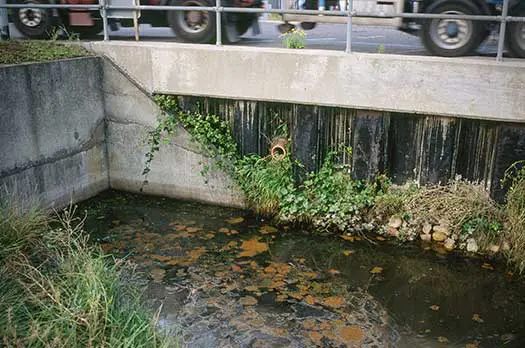Stormwater Compliance, SWPPP Management, NPDES Permit Consulting
- RSB is an industry leader providing affordable SWPPP stormwater management, plans and permits throughout Texas and the United States by a licensed Professional Engineer.
- We can help with NPDES Stormwater Permits and Plans as well as implement Best Management Practices (BMPs) by collecting and analyzing samples to address all requirements and keep you in compliance with NPDES-MSGP guidelines.
- Employee-owned company with low overhead and a dedicated team of experienced professionals familiar with NPDES-MSGP and SWPPP requirements allowing us to provide exceptional service at a lower price.
- Have peace of mind knowing that you are always in compliance. Never risk missing any of the required compliance items resulting in thousands of dollars in penalties and potentially bad press for your company or organization.
Request a free custom quote or call 1-833-910-2535
- RSB is an industry leader providing affordable SWPPP stormwater management, plans and permits throughout Texas and the United States by a licensed Professional Engineer.
- We can help with NPDES Stormwater Permits and Plans as well as implement Best Management Practices (BMPs) by collecting and analyzing samples to address all requirements and keep you in compliance with NPDES-MSGP guidelines.
- Employee-owned company with low overhead and a dedicated team of experienced professionals familiar with NPDES-MSGP and SWPPP requirements allowing us to provide exceptional service at a lower price.
- Have peace of mind knowing that you are always in compliance. Never risk missing any of the required compliance items resulting in thousands of dollars in penalties and potentially bad press for your company or organization.














Testimonial
WHAT OUR RECENT CLIENTS SAY ABOUT US
Sachin and his team at RSB Environmental are very helpful with our company’s environmental needs. Always courteous and informative in regards to our questions.
RSB Environmental is a great company, they are easy to work with and handle all our Environmental needs in a friendly professional way. I would recommend RSB Environmental for all your company’s environmental needs.
Introducing RSB Environmental's Storm Chess Program
Stormwater runoff is an important issue in stormwater compliance requiring communities and industries to rely on stormwater management contractors. Because of the complexities of stormwater management system issues, RSB Environmental based in Houston Texas has the experience and personnel to assist you with stormwater compliance and stormwater solutions in Texas and throughout the United States.
Getting NPDES Permit and preparing Stormwater Pollution Prevention Plan is not enough! Every permit holder is required by law to implement the Best Management Practices (BMPs), collect and analyze samples and report them to the State and Local agencies.
If any of the compliance items are missing this can easily result in thousands of dollars in penalties, liability, and potential litigation. Hence it is very important to have a stormwater program in place.
With this in mind, RSB Environmental has come up with a fixed fee monthly program to address all requirements of NPDES Stormwater Permits and Plans. We call this program… Storm Chess. Stormwater runoff can harm lakes, streams and rivers, and coastal water quality. So, to protect these resources, communities, construction companies, industries, and others use stormwater control, known as stormwater best management practices (BMP’s). These BMP’s filter out pollutants and/or prevent pollution by controlling it at its source.

What is NPDES?
The NPDES, National Pollutant Discharge Elimination System, stormwater management program regulates some stormwater discharges from three potential sources: municipal separate storm sewer systems (MS4’s), construction activities, and industrial activities. Operators of these sources might be required to obtain an NPDES permit before they can discharge stormwater. This permitting mechanism is designed to prevent stormwater runoff from washing harmful pollutants into local surface water system.
What is an NPDES permit?
The Environmental protection agency prohibits anybody from discharging “pollutants” through streams, rivers, and into the soil, streets and sewer system unless they have an NPDES permit.
What did the permit contain?
- limits on what you can discharge
- monitoring management and reporting requirements
- provisions to ensure that the discharge does not pollute water quality, protect people's health/residents and maintain balance. The movement of this stormwater across the soil causes erosion. It can also carries, deposit flows untreated pollutants, such as sediment, nutrients, and pesticides, into surface-water bodies. Impervious surfaces such as driveways, parking lots, sidewalks, sewer systems, and streets block rainfall flooding, and other precipitation from natural infiltrating into the ground, leading to even more stormwater and potential pollutant runoff. Rainwater harvesting offers a small-scale best management practice to reduce stormwater runoff.
In essence, the permit promotes the stormwater pollution prevention plan to meet the requirements of the Clean Water Act and environmental protection into specific provisions by environmental protection agency that is tailored to the operations of each person discharging pollutants. The NPDES stormwater program regulates some stormwater discharges
- Protection of wetlands and aquatic ecosystems,
- Improved quality of receiving water bodies,
- Conservation of water quality resources,
- monitoring management and reporting requirements
- Flooding control.
Stormwater Pollution Prevention Plan (SWPPP) Houston and Nationwide
A SWPPP is required for compliance with the National Pollution Discharge Elimination System (NPDES) General Permit and by State/Federal Regulations. The Multi-Sector Permit covers the industrial activities exposed to rainwater and runoff.
- A SWPPP plan contains;
- Annual comprehensive site compliance evaluations
- Signatures on designated worksheets in accordance with the attached signatory requirements
- Quarterly site inspections of the facility
- Quarterly visual monitoring of stormwater discharges
- Analytical monitoring of stormwater discharges
- Maintenance of a rain gauge with corresponding event log on site
- Remedy by SWPPP team of all benchmark exceedances within 90 days of notification

RSB Environmental can help with:
- Stormwater Pollution Prevention Plan (SWPPP)
- Stormwater Compliance (Industry and Construction)
- NPDES or State SWPermits
- City or County Stormwater Quality Permit Renewals
- Ground Water Investigation/Remediation
- Drinking/Potable Water System Compliance
- Spill Prevention Control and Countermeasures Plans
- Facility Response Plans
- Integrated Contingency Plans
- Training (such as stormwater certificate training)
- Fixed Fee All inclusive Stormwater Compliance Package (starting at $500/month)
Why Choose RSB Environmental For Your Stormwater Services?
RSB provides Outsourced Stormwater Services including a fixed fee monthly program (starting at $500 per month) to address all requirements of NPDES Stormwater Permit and Plan as required by law. We can assist you in system development that ensures compliance thus avoiding costly fines and penalties.
Our team of engineers and environmental professionals will help mitigate risk by implementing Best Management Practices (BMP), collect samples, development programs, analyze and report them to the State and Local agencies. Headquartered in Houston, Texas we also have field offices in cities across America.
All SWPPP, NPDES-MSGP Stormwater Plans, and Permits are completed by experienced staff and licensed, professional engineers with a minimum of 10 years experience in multiple environmental disciplines. Our prices are affordable and cost-effective because we are a mid-size employee-owned company without the overhead and expenses of a large company.
At RSB Environmental we recognize that cost reductions occur through proactive compliance with relevant health, safety, and environmental regulations programs that can improve your lost incident rate, reduce accidents and let you plan for environmental protection issues. We have developed a new concept in environmental health and safety consulting services at a fraction of the cost. Stormwater compliance is now affordable.
Our Service Areas
Frequently Asked Questions
What Is Stormwater Management?
Stormwater management is the effort to reduce stormwater runoff, rainwater or melted snow from impervious surfaces such as streets, parking lots, driveways, rooftops, lawns, and other areas, as well as to improve water quality.
When stormwater is absorbed into the soil, it is filtered and eventually replenishes aquifers or flows into streams and rivers. However, when heavy rains fall, the saturated ground produces excess moisture, which runs across the surface and into storm sewers and road ditches. This water frequently carries debris, chemicals, bacteria, eroded soil, and other pollutants into streams, rivers, lakes, or wetlands.
Runoff quickly overwhelms natural channels and streams, causing channel erosion, localized flooding, and property damage.
Pollutants such as motor oil and household cleaners can be transported by stormwater from impervious surfaces. With little or no treatment, this water flows directly from the streets into our creeks and rivers.
Why Is Stormwater Management Important?
- Prevent an increase in the likelihood of flooding.
Effective stormwater management aids in the control of flooding. Areas that practice stormwater management have a lower risk of flooding and, as a result, are less likely to suffer the negative effects of flooding.Flooding is more likely in urban areas and other areas with less vegetation during heavy rains unless proper management techniques are used.
- Prevent erosion.
Stormwater management helps to prevent excessive erosion by reducing the speed and volume of water flowing into streams. If stormwater is not managed properly, it can cause excessive erosion, preventing the stream from performing its normal function of transporting water and sediment.Stormwater can reduce land productivity by washing away the rich soil cover. Stormwater runoff, particularly in sloppy areas, can cause soil erosion, rendering agricultural land unfit for cultivation.
- Keep water quality in check.
Stormwater management is essential for ensuring water quality. Grease, oil, pesticides, metals, plastic, and pesticides from gardens and normal daily use tend to accumulate on surfaces. If stormwater is not managed properly, contaminants can be carried to water sources such as streams, lakes, oceans, and even groundwater.
What is an NPDES permit?
An NPDES (National Pollutant Discharge Elimination System) permit is a requirement for any facility that discharges pollutants directly into U.S. waters. It regulates the quantity and quality of the discharge.
What is a Stormwater Pollution Prevention Plan (SWPPP)?
An SWPPP is a document that outlines how a facility will reduce or eliminate pollutants in stormwater discharges. It includes strategies for good housekeeping, preventive maintenance, spill prevention and response, and erosion and sediment control.
Who needs to comply with stormwater regulations?
Typically, industrial facilities, construction sites, and municipalities that discharge stormwater directly into waters need to comply with stormwater regulations.
Our Registrations and Certifications







Industrial Hygiene

Engineering

Safety

Environmental Compliance




